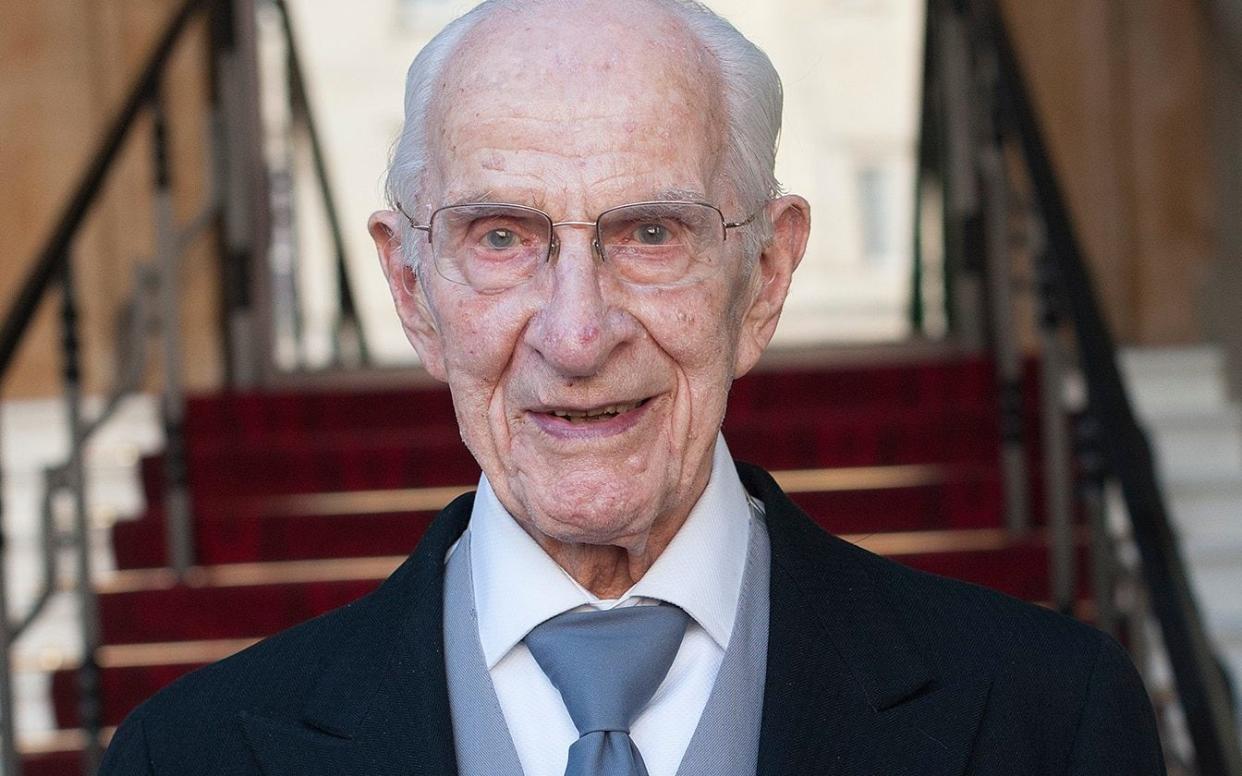Birth by Caesarean section is too sterile a way to begin life, says 'grandfather of allergy' on 107th birthday

Birth by Caesarean section is a ‘too sterile’ a way to begin life, Britain’s ‘grandfather of allergy’ has warned as he celebrates his 107 birthday.
Dr Bill Frankland, who popularised the pollen count and championed the hygiene hypothesis, which suggested modern cleanliness damages the immune system, warned that most allergies today were not caused by genetics, but by environment.
Failing to properly prime the immune system by allowing babies to pass through the birth canal, or breastfeed could store up problems for the future, he warned.
Asked what practical steps parents could take to protect their children from allergies, Dr Frankland said: “Genes may be important for 30 per cent of allergies but 70 per cent are due to the environment - is it from grandparents or parents smoking?
“How long is breastfeeding taking place, if at all? The obese child is unhealthy. Does the family live near a road and therefore breathing in pollution?
“How many children are born by Caesarean which is too sterile a way to begin life?”
Around 13 per cent of the 679,000 births in Britain are now by elective Caesarean while while a further 15 per cent need emergency c-sections. But there are fears that unless the baby passes through the birth canal it does not pick up important bacteria.

The UK also has some of the highest prevalence rates of allergic conditions in the world, with 44 per cent of British adults now suffering from at least one allergy. In the 20 years to 2012 there was a 615 per cent increase in the rate of hospital admissions for anaphylaxis in Britain.
As Britain's oldest working doctor, Dr Frankland still contributes to journals and consults people about their allergies. He also recently contributed to a biography of his life’s work.
It was Dr Frankland who championed the view that an allergic reaction is due to a malfunctioning immune system paving the way for the possibility of curing long term suffers by exposing them to small doses of the allergen.
He also worked alongside Alexander Fleming at St Mary’s Hospital in Paddington, London, and said Fleming was always concerned that bacteria would one day become resistant to penicillin.
Antimicrobial resistance is now one of the major concerns in modern healthcare, with experts fearing that unless the use of antibiotics is capped even minor infections could prove deadly, and surgery impossible.
“I was taught as a medical student by Professor Fleming in 1936 that antibiotic resistance would likely occur when penicillin was over-used,” he said.
“New antibiotics are being devised which hopefully will not become, even if over-used, bacterial resistant.”
But he is confident that the future of medicine will see people living for longer.
“We will learn how to live longer using information about cells and why they become abnormal,” he added.
Dr Frankland served in the Royal Army Medical Corps during the Second World War and was taken prisoner while working in Singapore, spending three-and-a-half years in an internment camp on Blakang Mati Island.
He received his MBE, aged 103, in 2015.

 Yahoo News
Yahoo News 
